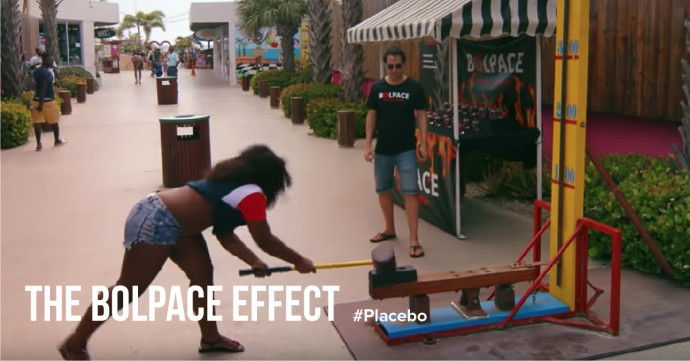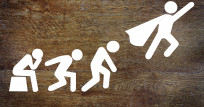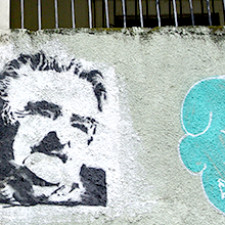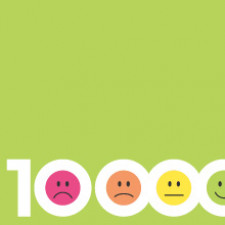The placebo effect - BOLPACE and (un)experienced life coaches
The funny Dutch TV series MINDF*CK Caribbean shows hilariously in episode 5 that the placebo effect is not just a theory. It really works! People can become physically stronger and feel more vital just because of their conviction. Is that perhaps also the explanation that even unexperienced life coaches can still achieve results with their clients?

The BOLPACE placebo experiment.
In a random street on Curacao, a booth was set up where the new energy drink BOLPACE was promoted. This liquid energy would be directly absorbed by your body. One test subject was told a story that it was a special extract of dates and figs from the Peloponnese, and the other was told that it contained Romanian crystals that directly activated the adrenaline in your cells.
Before taking the drink, they were allowed to hit a circus attraction with a hammer. How hard they hit was indicated on a meter. After taking the drink, they were first asked if they felt the effect. Most agreed to get a tingling feeling or feel more energetic right away.
When the subjects were allowed to hit the hammer for a second time after taking the drink, the meter indicated to all subjects that they had much more strength. (This was not fake and therefore actually true).
When the test subjects were told that they had just drunk sparkling spring water and that BOLPACE was an anagram for PLACEBO, they all laughed in amazement.
(Un)experienced coaches and the placebo effect
Just as with sports, it is also true for coaches that one has more talent than the other. But coaching also requires, just like top athletes do, a lot of training and experience to become really good at it. The human psyche is so complex that an enormous amount of knowledge is needed to be able to help someone properly. And that knowledge also has to be applied in the right way to have the desired effect.
What makes someone a good coach
This article explains how to recognize a good coach and what the difference is between a coach and a trainer. In all simplicity, a good trainer tells you what you need to do to become better at something, and a good coach lets you find answers to get the best out of yourself. You could say that training is about practice, and coaching is about insight and transformation.
Coaching and the placebo effect
There are people who, after an (expensive) coaching course of a few weeks, think they can coach anyone. Theoretically, this is possible; the only question is how effective and sustainable those coaching sessions are. BOLPACE shows that you can give someone more strength and energy within a few minutes. But of course, that has nothing to do with what coaching is about.
The problem is that the junior coach actually makes the client feel better. Just like BOLPACE did. The client writes a good review after the session, and the junior coach thinks he is a good coach. Usually, the client comes back a few more times, and after a few sessions, the treatment stops. Often, without lasting results, because no transformation has taken place.
Do you always need the best coach to transform?
You do not always need the best coach to transform. Sometimes a conversation about a subject is enough to come to new insights. The little bit of knowledge about coaching from the life coach may be enough. It becomes more problematic when there are real and serious mental problems. Like an addiction, anxiety or depression and a burn-out.
These mental disorders can even get worse by inexperienced coaches. Besides, due to the failure of the coaching sessions, the person may feel that anyone can no longer help them. They lose confidence in life coaches in general.
Life coaches need to know their limits and take responsibility.
As a beginning life coach, you need to practice, train, and continue to learn to become better at your job. Clients find it difficult to distinguish which coach is right for them. That is why it is the responsibility of the coaches themselves to distinguish which clients you do and which you do not choose to help.
The difficulty here is that it is often not easy to build up an economic right to exist as a coach. There are too many people who call themselves coaches, and there is not enough demand. This makes it tempting for a coach to push the boundaries for economic reasons.
Another difficulty for coaches is that the real mental problem is not visible from the outside. You may be able to hear from someone and see that they have anxiety or depression, but the mental cause must be questioned. Because an inexperienced coach usually takes longer to ask and get to the root of the problem, it can be difficult to reject a client right away without knowing for sure if you could have helped the person.
Tips for choosing the right life coach
- Estimate the seriousness of your problem as accurately as possible. Coaching about your heartbreak is usually less difficult than coaching for panic attacks, which has prevented you from going out of the house for a year.
- Ask the coach for his background and experience. Each senior coach has one or more expertises. A junior coach is more likely to say that he does all kinds of coaching.
Tips to help the right clients as a coach
- Remember that the importance of transforming your client must take precedence over your own economic interests. Be transparent about your education, experience, knowledge, and skills when accepting a client.
- As an inexperienced life coach, provide a network of experienced coaches and when in doubt, do not hesitate to refer clients.
- Do not believe that you are a good coach because your client says so and comes back to you or forwards new clients. It can also be the placebo effect, no matter how difficult it is to acknowledge this.
-
Vivek SanagariPersonal DevelopmentUS$ 0,18 pm
-
Ornela theCoachLife coachUS$ 0,50 pm
-
Liz de WitMindset coachingUS$ 0,46 pm
-
Wesley KelderHealth & MarketingUS$ 1,88 pm
-
Sabrina RossiBe Helpful for otherUS$ 1,17 pm
-
Mallory Balesspiritual life coachUS$ 1,00 pm


































